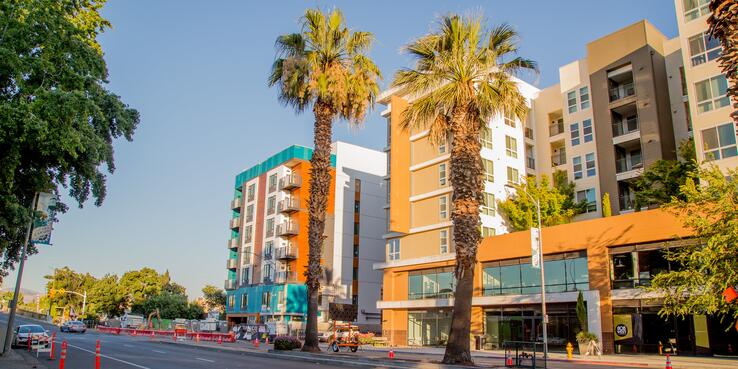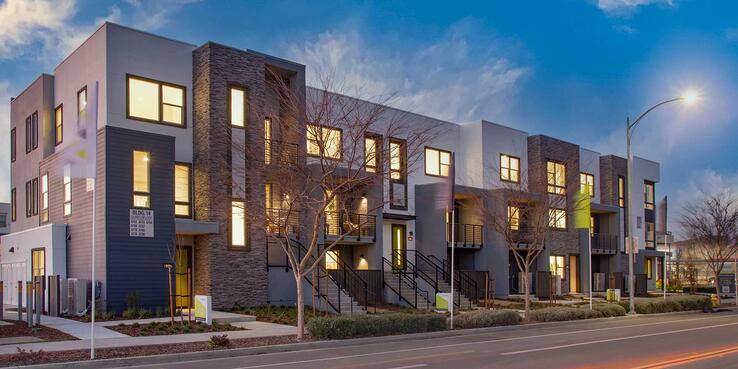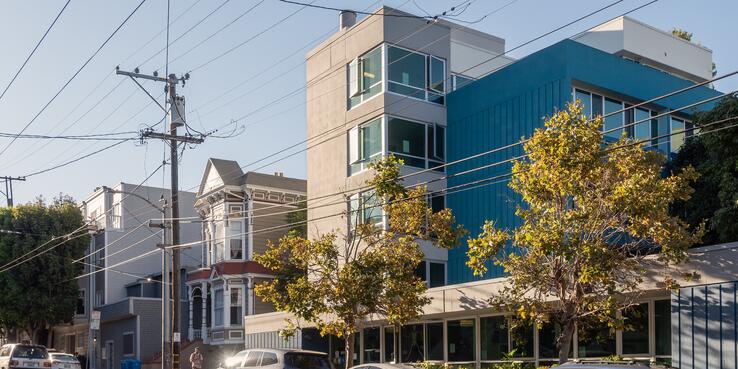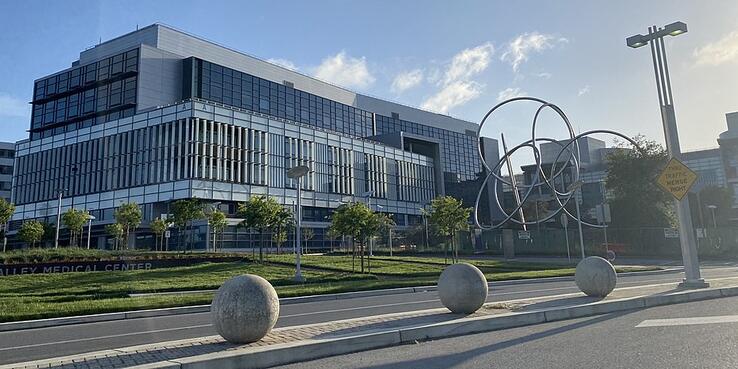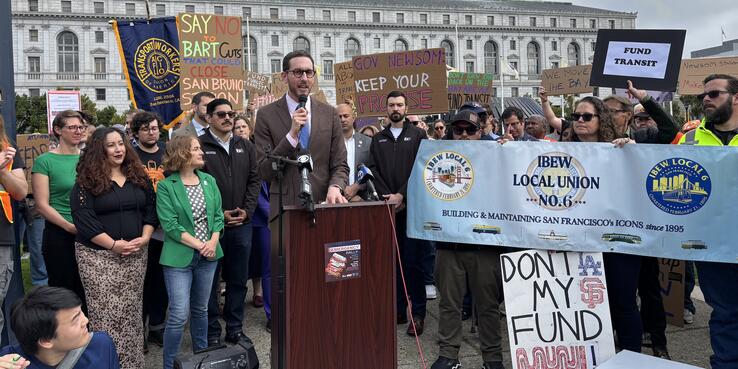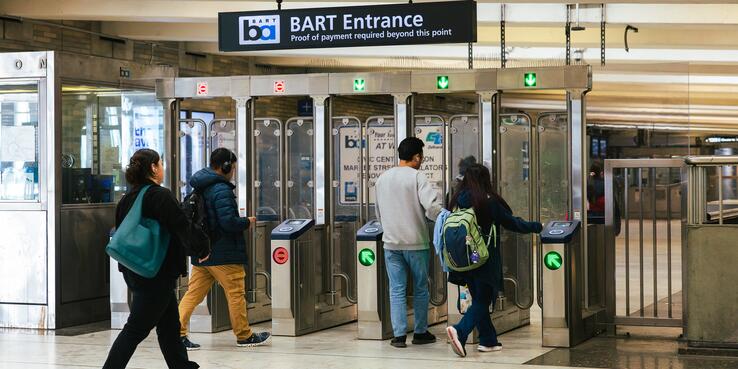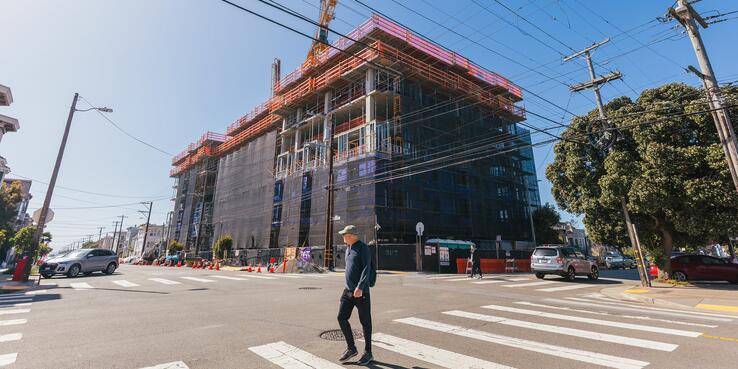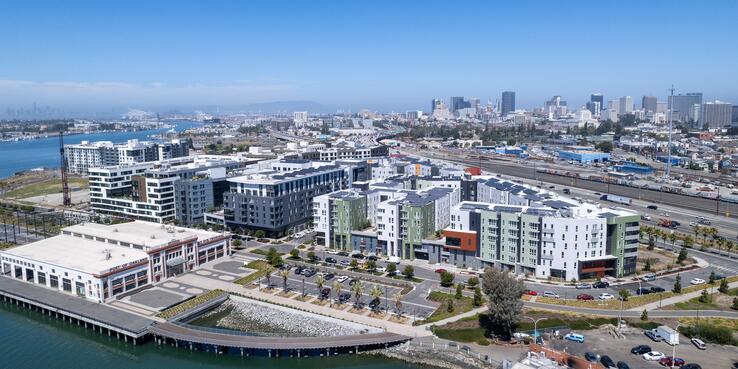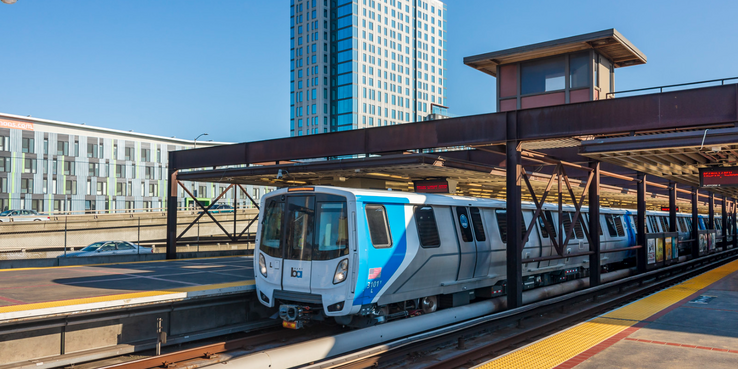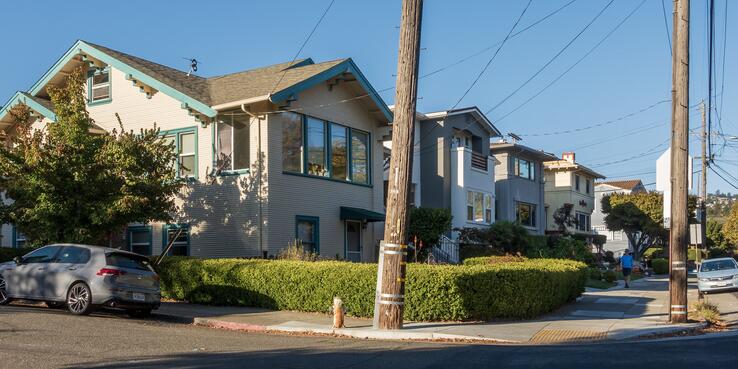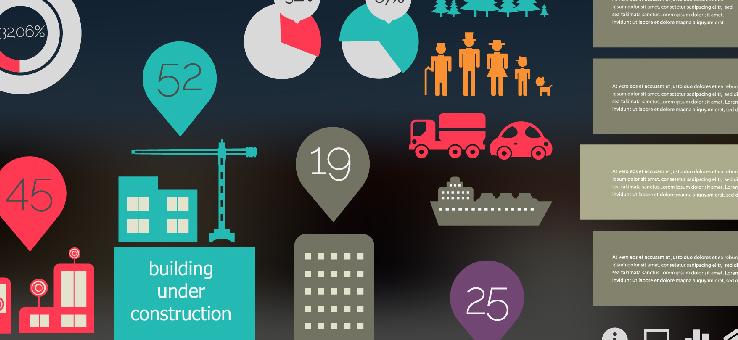
Governor Newsom Signs Four SPUR-Sponsored Housing Bills Into Law
News / This month, Governor Newsom signed into law 45 housing-related bills, including four sponsored by SPUR. We played a critical role in developing these bills, which aim to facilitate low- and middle-income multifamily housing near transit. The bills address zoning, mixed-income housing on commercial properties, transparency in housing production, and traffic impact fees, significantly advancing the state’s housing goals.
Condos Provide Affordable Homeownership, So Why Doesn’t California Build More of Them?
News / Multifamily condos made up only 3 percent of new housing built in California between 2011 and 2021, compared to 38 percent in Canada. Why? A new report commissioned by the Terner Center for Housing Innovation at UC Berkeley and SPUR identifies a direct consequence of our state’s construction defect liability laws: the high cost of insurance for condo builders pushes developers to build rental apartments instead of for-sale projects that could create more affordable homeownership opportunities.
Bay Area Cities Amend Their Building Codes to Advance Sustainability and Resilience
News / An October deadline for amending local energy codes has inspired many California cities to accelerate adoption of energy efficiency and sustainability “reach” codes, which SPUR helped develop. Because the deadline makes some exceptions for home hardening and emergency standards, Bay Area cities are reassessing their options to exceed the state minimum requirements for resilient building design. Doing so offers big savings but requires incentives to offset upfront costs.
Yes on Measure A: Sales Tax Increase to Stabilize Health Care in Santa Clara County
News / On November 4, 2025, Santa Clara County voters will weigh in on a proposed measure to temporarily raise the county sales tax from 9.125% to 9.75%, estimated to generate $330 million per year until it expires in 2031. While sales taxes are regressive in nature, Measure A would directly benefit low-income and vulnerable communities by backfilling some of the deep federal funding cuts to social safety net services such as Medicaid. SPUR recommends a YES vote on Measure A.
Playing to Strengths: Nuestra Casa’s Osvaldo Macias on the Impact of Partnership with SPUR
News / SPUR collaborates with Nuestra Casa to address critical environmental and public health issues, such as groundwater rise and drinking water safety, in East Palo Alto. We asked Nuestra Casa Environmental Justice Fellow Osvaldo Macias about the fruits of this partnership. He explains how our work together has advanced impactful research while extending his organization’s reach and influence in advocating for policy changes.
Financing Climate Adaptation and Hazard Mitigation, Part 2: Growing Wildfire Resilience Investments
News / California has dramatically expanded wildfire spending over the past decade, but most resources still go toward fire response rather than proactive resilience measures like vegetation management, home hardening, and community preparedness. To match the scale of rising wildfire risks, the state must increase and maintain resilience investments.
SPUR Leads a Big Push for Transit Funding as California Legislative Session Wraps
News / The 2025 California legislative session was a critical one for averting a transit fiscal cliff. As the session drew to a close, SPUR worked with our partners to focus on three issues: securing critical short-term loans for transit operators; passing Senate Bill 63, which authorizes a regional transit funding measure for the November 2026 ballot; and maintaining funding for transit within the renewal of the the state’s Cap-and-Invest Program.
2025 Fellows and Interns Fuel SPUR’s Research
News / This summer, SPUR hosted a talented group of policy researchers through partnerships with fellowship and practicum programs at high schools, colleges, and graduate programs. Learn more about the work they did with SPUR and where they headed after collaborating with us.
SPUR Research Shows What Could Happen to the Region Without Transit Funding
News / Why should voters in one county care about funding transit in another? Because the Bay Area’s transit system is very regional. SPUR research found that Bay Area transit trips are 70% more likely to cross county lines than car trips, making the success of all transit agencies vital to the region’s health. We dug into the impacts of the looming $800 million annual deficit and why Senate Bill 63 is the best hope to save Bay Area transit.
What Will San Francisco’s Family Zoning Plan Mean for Traffic and Commuting?
News / San Francisco’s proposed Family Zoning Plan would allow thousands of new housing units to be built in west side neighborhoods that haven’t seen much growth in decades. What would a population increase like this mean for traffic and mobility in this part of the city? SPUR delved into local transportation data and made some surprising discoveries about traffic and commute patterns.
The Bay Area’s Path to Clean Air: Zero-Emission Appliance Rules Are Primed for Success
News / Bay Area Air District rules phasing out the sale of gas-fired space and water heating equipment will lead to the steady transition to heat pumps in homes and the realization of enormous health and environmental benefits. A thoughtful implementation process will ensure the rules are on track for success. SPUR recommends four actions to strengthen that process.
Understanding City Charters: A Local Government’s Constitution
News / Most residents are unfamiliar with their city’s charter — the foundational legal document that functions as a city’s local constitution and shapes nearly every aspect of its governance. As San Francisco and Oakland consider changes to their city charters, SPUR dives into what a charter is, how it works, and why it’s important to everything from the powers of elected officials to how public services are delivered.
California Has a Transit Cost Problem — and a New Appetite to Deal With It
News / In California, it takes too long and costs too much to build infrastructure of all kinds, including transit. A new report from Circulate San Diego in partnership with SPUR details the challenges that transit projects face during the permitting process and ways to overcome them. Powerless Brokers charts a set of possible next steps for the state legislature following a momentous year for infrastructure streamlining.
Financing Climate Adaptation and Hazard Mitigation, Part 1: Federal Cuts Increase Bay Area’s Risks
News / Hazard mitigation and climate adaptation investments — overlooked until disaster strikes — reduce long-term damage, save lives, and lower recovery costs. Yet just as the stakes of climate hazards skyrocket, the federal government has begun to retreat from its leadership role in mitigation, leaving states and local governments scrambling to fill the gap.
San Francisco Implements SPUR’s Recommendations to Accelerate Office-to-Residential Conversions
News / The City of San Francisco has implemented all six of SPUR’s recommendations to accelerate adaptive reuse projects. By converting obsolete office buildings into housing, the city will provide significant economic, social, and environmental benefits: more housing for workers, support for small businesses and cultural organizations, increased office space value, and greater property and sales tax revenues.
Sacramento Gave Bay Area Transit a Lifeline, But Transit Is Not Out of the Woods
News / After an especially fraught budget season, Governor Newsom signed the state budget into law on June 30, providing critically needed relief funding for public transit. The lifeline from the state will buy time to avoid service cuts in the near term. Long-term stability hinges on passage of a tax measure and reauthorization of the Cap-and-Trade Program.
For San Francisco’s New Planning Director, Failure and Flexibility Can Spell Progress
News / For San Francisco’s new planning director, the 2007 recession was revelatory: no matter a city’s vision, market realities and risk management dictate development outcomes. That realization sparked Sarah Dennis-Philips’ curiosity about how capital flows and public policies influence what actually gets built. In a world where planning, land use, and growth are no longer predictable or sequential, Sarah says the role of city planner has expanded from designer and regulator to strategist, facilitator, and problem solver.
The Red Tape Holding Back Heat Pump Adoption, and What to Do About It: Q&A with Sam Fishman
News / Heat pumps can heat and cool buildings, reduce greenhouse gasses, and improve indoor and outdoor air quality. So why aren’t they more common in California? A web of complex requirements, restrictive zoning and planning codes, excessive documentation requirements, and high fees have hindered adoption. SPUR’s Sam Fishman explains current permitting headaches and walks us through how to smooth the way to a gas-free future for buildings.
Timing Is Money: Transitioning Homes to Electric Energy When the Financial Burden Is Lightest
News / SPUR supported a recent Berkeley ordinance that motivates investments in zero-emissions home retrofits by taking advantage of home sales to require energy upgrades. Berkeley’s time-of-sale approach balances consistent investment with flexible compliance pathways for retrofits. It’s just one approach cities can take to expand their decarbonization toolboxes.
Greenlighting Clean Heat
Policy Brief / California and the Bay Area are using zero-emission appliance rules, building codes, and climate action plans to move the heating appliance market and consumers toward a gas-free future for buildings. But fragmented and outdated permitting systems are posing a barrier to adoption of electric appliances and delaying their health and climate benefits. SPUR offers five recommendations to streamline and standardize permits to improve safety, lower costs, reduce burdens on contractors and consumers, and create a fairer, more efficient system.
